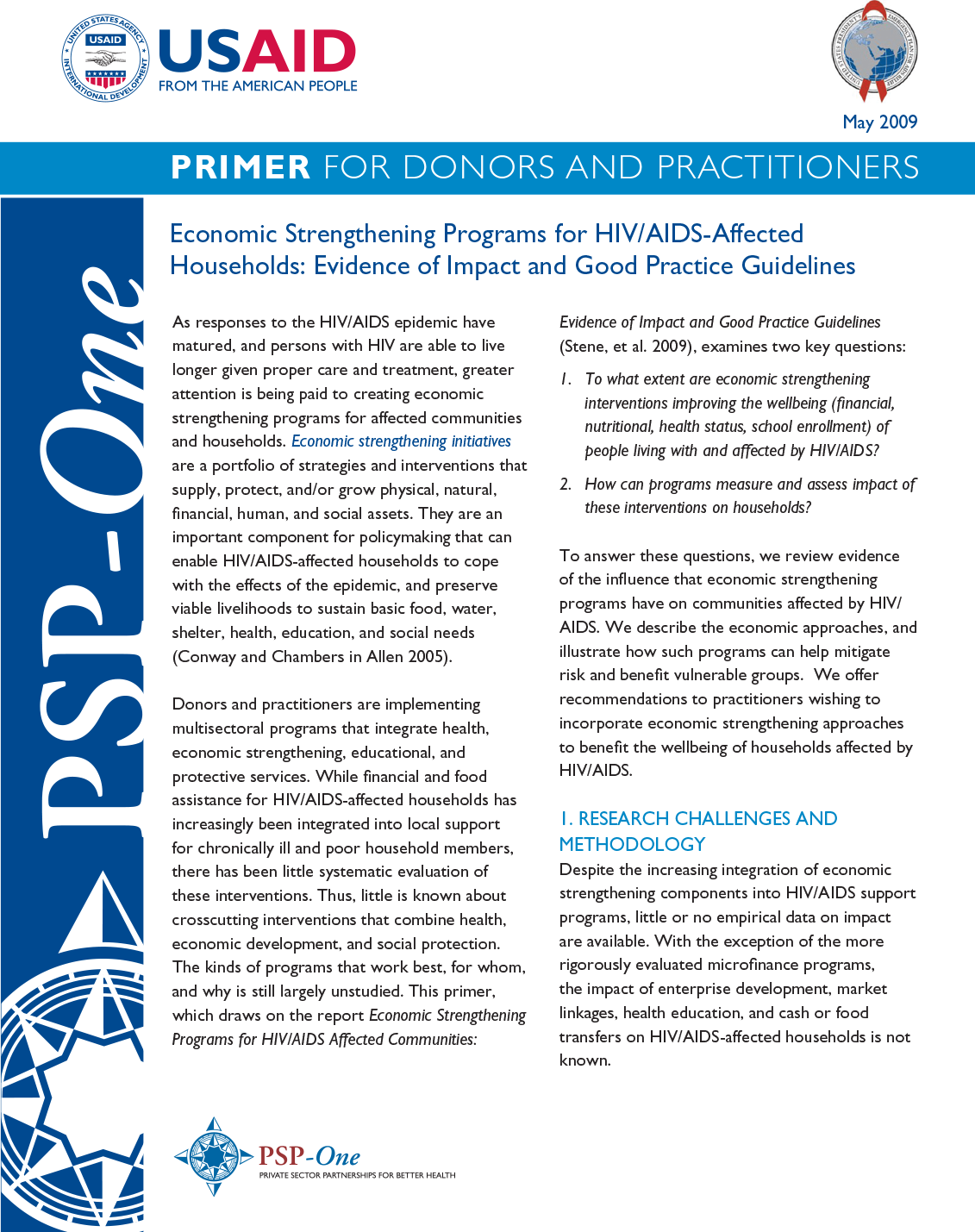
Resource Library
Economic Strengthening Programs for HIV/AIDS-Affected Households: Evidence of Impact and Good Practice Guidelines (Primer)
As responses to the HIV/AIDS epidemic have matured, and persons with HIV are able to live longer given proper care and treatment, greater attention is being paid to creating economic strengthening programs for affected communities and households. Economic strengthening initiatives are a portfolio of strategies and interventions that supply, protect, and/or grow physical, natural, financial, human, and social assets. They are an important component for policymaking that can enable HIV/AIDS-affected households to cope with the effects of the epidemic, and preserve viable livelihoods to sustain basic food, water, shelter, health, education, and social needs (Conway and Chambers in Allen 2005). Donors and practitioners are implementing multisectoral programs that integrate health, economic strengthening, educational, and protective services. While financial and food assistance for HIV/AIDS-affected households has increasingly been integrated into local support for chronically ill and poor household members, there has been little systematic evaluation of these interventions. Thus, little is known about crosscutting interventions that combine health, economic development, and social protection. The kinds of programs that work best, for whom, and why is still largely unstudied. This primer, which draws on the report Economic Strengthening Programs for HIV/AIDS Affected Communities: Evidence of Impact and Good Practice Guidelines (Stene, et al. 2009), examines two key questions:
- To what extent are economic strengthening interventions improving the wellbeing (financial, nutritional, health status, school enrollment) of people living with and affected by HIV/AIDS?
- How can programs measure and assess impact of these interventions on households?
To answer these questions, we review evidence of the influence that economic strengthening programs have on communities affected by HIV/ AIDS. We describe the economic approaches, and illustrate how such programs can help mitigate risk and benefit vulnerable groups. We offer recommendations to practitioners wishing to incorporate economic strengthening approaches to benefit the wellbeing of households affected by HIV/AIDS.
Resource Type : Brief
Country :
Year : 2009-05-21T11:30:00
Language : English
Project : SHOPS


